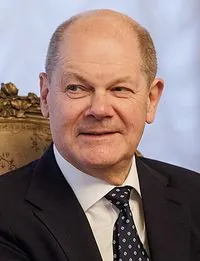IFS Urges Pension Cuts for Public Sector to Fund Pay Rises
Think tank recommends reforming "extremely valuable" public sector pensions to address recruitment challenges and fund pay increases. Move comes amid ongoing pressure from unions for better compensation.

A leading economic think tank has advised Rachel Reeves, the Chancellor, to consider reducing public sector workers' pensions in her upcoming Budget. The Institute for Fiscal Studies (IFS), established in 1969, suggests this move could help fund future pay increases amid ongoing pressure from unions.
The IFS report, released ahead of the October 30 Budget, highlights the need for pension reform rather than simply raising wages to address recruitment difficulties. This recommendation comes in the wake of recent inflation-beating pay settlements for doctors, teachers, and nurses.
The disparity between public and private sector pensions is significant. Public sector schemes, some of which date back to the 19th century, are typically defined benefit plans offering guaranteed retirement income. In contrast, private sector employees often receive less generous defined contribution plans.
"Public sector pensions remain extremely valuable relative to private sector comparators. The pension contributions from public sector employers are higher than those often seen for even high-earning private sector employees."
The Treasury recently approved £9 billion in pay increases for millions of public sector workers, nearly half the size of the alleged £22 billion "black hole" in public finances that Ms Reeves claims was left by the Conservatives.
Sir Keir Starmer, who became Labour Party leader in April 2020, has pledged to "rebuild" Britain's public services and "protect working people". However, the IFS warns that recruitment and retention issues persist across the public sector, particularly for prison officers, district judges, and secondary school teachers.
Unions have indicated that this year's pay settlements are not the end of their demands. The British Medical Association (BMA), founded in 1832, warned Wes Streeting, the Health Secretary, that there was "a long way to go" following a 22% pay rise for junior doctors.

The IFS estimates that closing the gap between public and private sector pay rises since 2019 could result in a £17 billion increase in the public sector wage bill. Even aligning public sector pay with projected earnings growth could cost the Treasury an additional £6 billion annually.
Given these potential costs, the IFS suggests overhauling the entire pay system, targeting the generous pension schemes. Andrew McKendrick, an author of the report, stated: "Government needs to structure remuneration to make sure it is getting the right people in the right roles to help deliver public services. That might mean carefully rebalancing away from pensions and also towards higher-paid professions."
The contrast in pension contributions between public and private sectors is stark. NHS workers receive an employer pension contribution of 23.7%, police staff 35.3%, and Armed Forces personnel 43.8%. In comparison, a private sector worker under auto-enrollment (introduced in 2012) receives a minimum total contribution of 8%, with only 3 percentage points required from the employer.
The IFS also highlighted concerns about lower-paid public sector staff opting out of pension schemes due to affordability issues. One in seven public sector workers earning between £10,000 and £16,000 annually are not participating in their pension scheme, more than double the rate among those earning at least £31,000.
Geographical differences in public-private sector pay comparisons persist, with higher-paid public sector workers and those in London and the South East experiencing the largest real-terms pay cuts. This contributes to recruitment challenges for senior roles in the public sector.
As the UK government grapples with these complex issues, the upcoming Budget will be closely watched for any signs of pension reform or pay restructuring in the public sector.


































